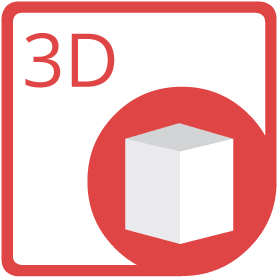
Convert GLTF to GLB via Java
GLTF to GLB conversion using Java library without any 3D modeling software.
How to Convert GLTF to GLB Using Java
In order to render GLTF to GLB, we’ll use
API which is a feature-rich, powerful and easy to use conversion API for Java platform. You can download its latest version directly from
and install it within your Maven-based project by adding the following configurations to the pom.xml.
Repository
<repository>
<id>AsposeJavaAPI</id>
<name>Aspose Java API</name>
<url>https://repository.aspose.com/repo/</url>
</repository>
Dependency
<dependency>
<groupId>com.aspose</groupId>
<artifactId>aspose-3d</artifactId>
<version>version of aspose-3d API</version>
<classifier>jdk17</classifier>
</dependency>
Steps to Convert GLTF to GLB via Java
Java programmers can easily convert GLTF file to GLB in just a few lines of code.
- Load GLTF file via the constructor of Scene class
- Call the Scene.save method with GLB’s format.
- Check resultant GLB file at specified path
System Requirements
Before running the Java conversion code, make sure that you have the following prerequisites.
- Microsoft Windows or a compatible OS with Java Runtime Environment for JSP/JSF Application and Desktop Applications.
- Get latest version of Aspose.3D for Java directly from Maven.
Java 3D Scene Manipulation Library
Aspose.3D is a CAD and Gameware API to load, modify and convert 3D files. API is a standalone and does not require any any 3D modeling or rendering software. One can easily use API for USD, Discreet3DS, WavefrontOBJ, STL (ASCII, Binary), Universal3D, FBX (ASCII, Binary), Collada, glTF, PLY, GLB, DirectX and more formats.GLTF What is GLTF File Format?
glTF (GL Transmission Format) is a 3D file format that stores 3D model information in JSON format. The use of JSON minimizes both the size of 3D assets and the runtime processing needed to unpack and use those assets. It was adopted for the efficient transmission and loading of 3D scenes and models by applications. glTF was developed by the Khronos Group 3D Formats Working Group and is also described as JPEG of 3D by its creators. The format defines an extensible, common publishing format for 3D content tools and services that streamlines authoring workflows and enables interoperable use of content across the industry. The intention behind the creation of glTF file format was to define an extensible, common publishing format for 3D content tools and services that should streamline authoring workflows and enable interoperable use of content across the industry. It minimizes runtime processing by applications using WebGL and other APIs.
Read MoreGLB What is GLB File Format?
GLB is the binary file format representation of 3D models saved in the GL Transmission Format (glTF). Information about 3D models such as node hierarchy, cameras, materials, animations and meshes in binary format. This binary format stores the glTF asset (JSON, .bin and images) in a binary blob. It also avoids the issue of increase in file size which happens in case of glTF. GLB file format results in compact file sizes, fast loading, complete 3D scene representation, and extensibility for further development. The format uses model/gltf-binary as MIME type.
Read MoreOther Supported Conversions
You can also convert GLTF into many other file formats including few listed below.